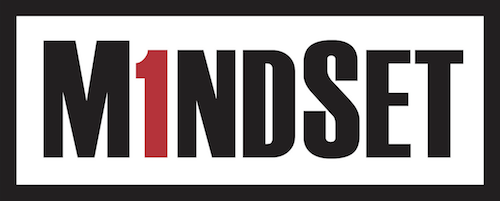Leaders do a lot of listening. We just often do it wrong.
Jennifer Garvey Berger, the CEO of a London-based coaching and consulting company called Cultivating Leadership, has laid out a brilliant model for categorizing three types of listening. It is smart on steroids and offers practical implications for our day-to-day interactions.
Jennifer states that there are three distinct types of listening.
Listening to Win
In this mode we listen to the other party to collect data that we can use against them, or at least to get to the outcome that we want to accomplish. Think of interacting with a good salesperson who is listening to us, but doing so to gather information that they can use to buttress or refute so as to move us closer to saying yes to the sale. Or if we are in a meeting and someone suggests an idea that we think is lousy – we will start to listen to find the flaws we can point out as soon as we have the opportunity to speak.
Listening to Fix
In this mode we are have expertise (or at least we think we do!) that gives us a mental model (or schema) we are going to use to fix a problem. As such, we ask questions in a structured way and just want the other party to respond specifically to our questions. This is how a good car mechanic, doctor, or attorney will often interact: they will diagnose the problem and suggest how to proceed if we will just answer their structured series of questions. Anything the expert considers to be superfluous information is not welcomed.
Listening to Learn
In this mode we are focused on finding out what the other person is thinking and feeling. We are not trying to “win” nor have we moved to problem solving. Instead we are focused on understanding and learning.
There is a time and place for all three types of listening, but for the past several years MindSet has been encouraging leaders via our active listening training to more frequently listen to learn. Today I want to expand this to suggest that the failure to listen to learn contributes to many of our most intense, current social problems.
Today’s public square is absolutely saturated with individuals who are listening to win. It’s all over the place. It has even heavily infiltrated one of the disciplines whose entire premise for existence should be to listen to learn: journalism. Consider how often we now have “journalists” who conduct interviews or ask questions not to actually learn, but to catch the other party in some verbal trap to make them look bad or to tee up easy questions to make them look good.
“Congressman, you are probably aware that many have said that your budget proposal would be a disaster were it to be approved. They claim it would harm our economy, damage our military preparedness, disrupt our healthcare system – and all while failing to address long-term entitlement cost issues. What do you say to that? And if you could, please be brief as we have to go to break in 35 seconds.”
Advocacy journalism is by its very nature premised on listening to win.
There is no doubt that there is a place for listening to fix. But if we delay that mode for just a bit, and stay a bit longer in the listening to learn mode, it will increase the likelihood we end up fixing the actual problem, i.e., better problem identification.
I smile at what often happens when I have suggested this more listening to learn insight to others, because it tracks with my initial reaction when I read Jennifer’s thoughts. I immediately saw how right she was: I do indeed know many people who are just listening to win – and that is 100% preventing them from listening to me to learn. Talking to them is like talking to a brick wall. If they could just adopt this insight, I could teach them to see the world so much more clearly! Then it hit me: they would likely say the same about me.
Of course in politics, be it on the national stage or the internal politics of an executive team in a business, often times two people are talking to one another, but for each of them the real audience is the others listing to the conversation – thus both are listening to win instead of listening to actually understand the thoughts of the other person. (Think presidential debates – is there ANY listening to learn? Is there ANY listening to fix? NO – ZERO – NONE! All listening to win.) Thus, if you are going to have a decent chance of interacting with another human where you are both listening to learn, I suggest you have the conversation in private, taking away the impetus to either save face or to influence those who are passively listening in on the conversation.
Here is another suggestion: become more curious. Try adopting an attitude that you want to come away from a conversation understanding what the other party thinks and feels. This is a key premise to get in mind: Doing so does not mean you agree nor does it suggest that you are weak.
When we become more curious, adopting a listen-to-learn approach, boy do we ever learn! Your knowledge and understanding quotient will explode. Just try it for a while – be passionate to grasp what the other person is thinking and feeling, and you will GROW by that knowledge. You already know what you think, so stop wasting so much time sharing that as the other person is likely stuck in a mode of listening to win, so they’re not going to learn from you anyway. You will be the one who comes away the winner in the exchange, although the other person will likely be completely oblivious to what just happened.
Now if you are extremely lucky, you can have a genuine friendship with someone who sees the world very differently from you, but who also wants to listen to learn. What a wonderful experience those conversations can be – but it is, sadly, quite rare in 2020. Here is a wonderful example of a couple people who bridged that gap – and I would encourage you to watch – maybe we all could even learn.

Founder of MindSet, LLC.

